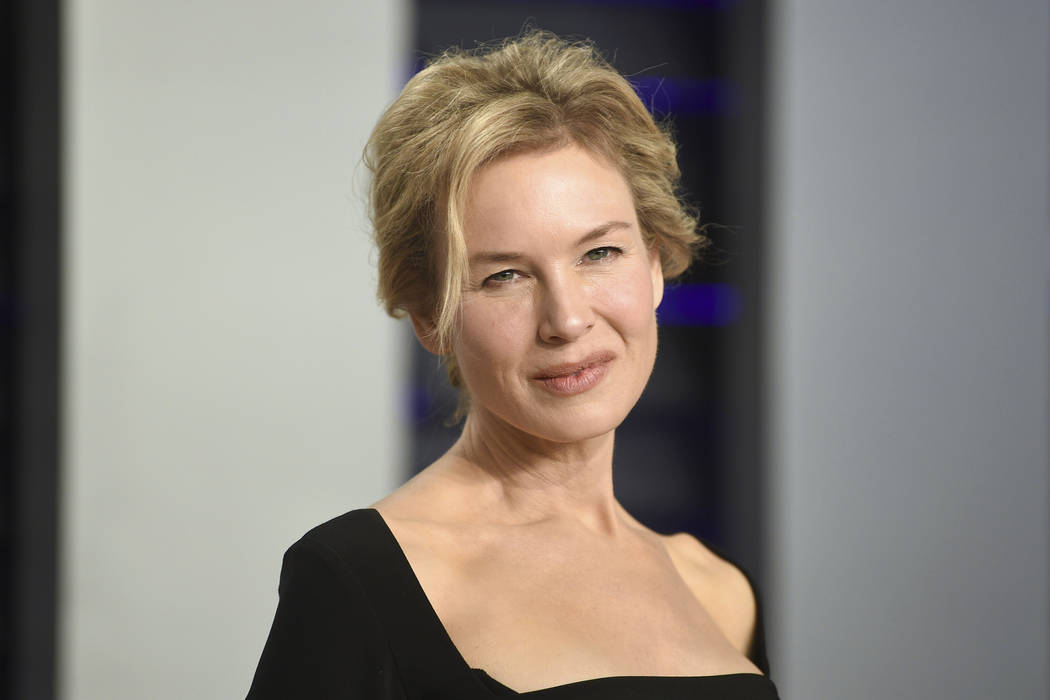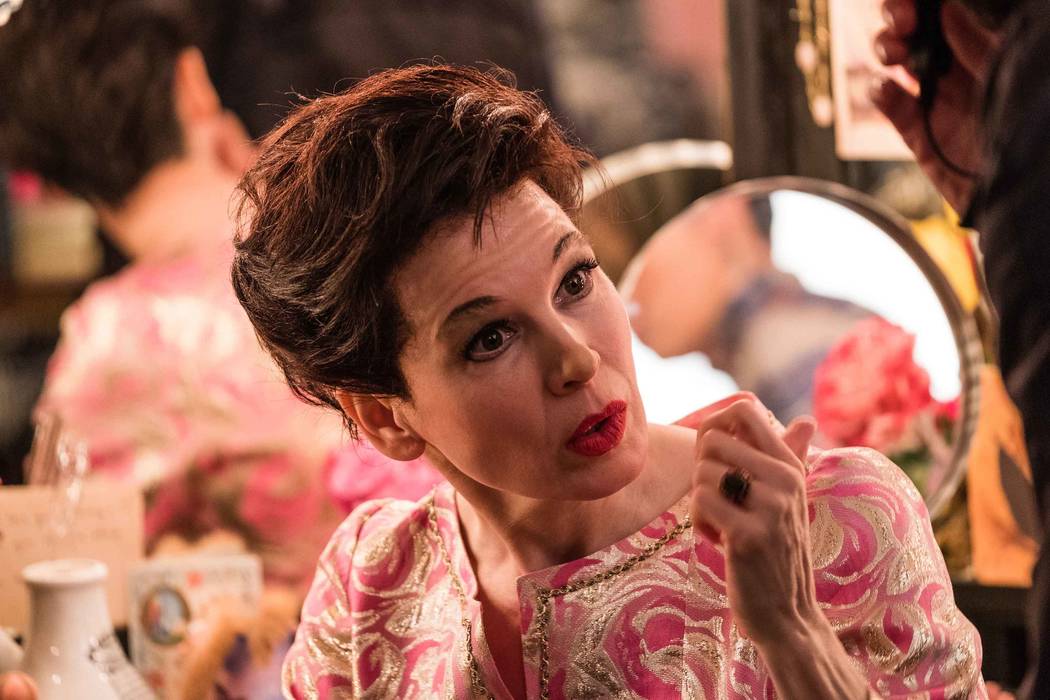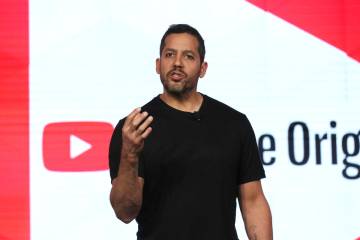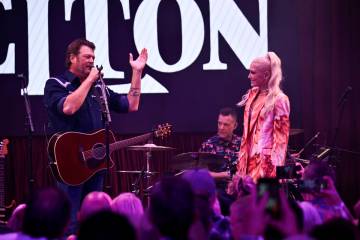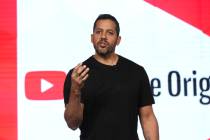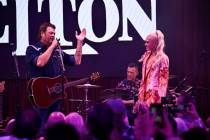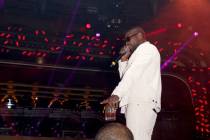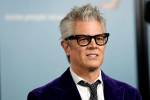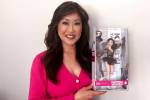Renée Zellweger talks about portraying Judy Garland
Renée Zellweger’s epiphany struck at the airport six years ago. The actress ran into old friend Salma Hayek when both were on the run, 20-plus years into Hollywood careers, and mulling their next acts.
Hayek said something that changed Zellweger’s outlook on life: “She said, ‘The rose doesn’t bloom all year. … Unless it’s plastic,’ ” Zellweger recalled. “Immediately, I got it.”
That remark led Zellweger, now 50, to take a six-year career break, returning in what many are calling a “Renee-ssance.” In the film “Judy,” which opens Friday, she plays icon Judy Garland. Many are predicting the performance by the Katy, Texas, native known for films including “Jerry Maguire” and the “Bridget Jones” franchise, will earn her a best actress Oscar.
Set in 1968, the film finds Garland at the end of a celebrated career and in London for a five-week, sold-out run at The Talk of the Town nightclub. She was broke and fighting for custody of her children, her health on a downward slide. Haunted by memories of a childhood lost to Hollywood, Garland embarks on a relationship with nightclub manager Mickey Deans (Finn Wittrock), who soon becomes her fifth husband.
“Her career was one part of her life. I wanted to look into the human side of this icon,” said Zellweger, who received a two-minute standing ovation at the Toronto Film Festival in early September.
Review-Journal: What’s a great Sunday for you?
Renée Zellweger: I just like to do nothing and let the day take me where it may. I live a bit far out in California, so a great Sunday is just making a meal and hanging out with my dogs or just enjoying the peace. Or maybe I’ll go into town and meet up with friends. … Maybe I’ll put on some Beatles music. You need a little Beatles every single day.
What do you make of all of the Oscar talk for “Judy?”
It’s just an extension of the blessing of this movie. It also means I get to hang out with my friends from this film a bit more. It’s always sad when you’re actually finished with a project you love and leave to go off to other things. It’s nice to meet up to celebrate a film and have a laugh with your friends.
Why is Judy Garland relevant now?
She is arguably the greatest entertainer who ever lived. She meant so much to so many people. And she had that gorgeous, gorgeous voice where she just poured out her entire heart into her songs. There was a reason why this woman was a legend and we’re still talking about her all these years later.
You’ve summed up playing the role in one word: Terrifying.
It was terrifying and wonderful. But I was so in love with her and thought of this film as a huge celebration of her.
Is there an added pressure when you’re playing a real-life person?
You want to represent things as accurately as you can by digging through the historical and public record of the legacy of Judy’s life. In reading those things and considering the source, I learned a little bit about the difference between the person’s true history and the public account, and tried to find the balance in between.
You do your own singing in the film, which is remarkable. How did you train?
I began a year before we started filming by training with a coach. I couldn’t sing those songs initially because I didn’t have the strength to do it. My stomach just flipped every single time I had to sing. So, I practiced. I would sit in my car singing Judy, knowing I would soon be doing that in front of an audience on set.
A pivotal scene in the movie is when you sing “Somewhere Over the Rainbow” from “The Wizard of Oz.”
I remember being a girl watching “The Wizard of Oz” on TV, and I’ll never forget the connection Judy had with that song. When I sang it to an audience in the movie, I knew it was one of the key moments. It was so important to capture that magical bond between Judy and her audience.
Judy was worried that people would forget her.
I’m sad to say that I took her for granted, like a lot of people you love in your life. She was just always there. I wonder if she knew how much of an impact she had on people’s lives and how much love and affection the fans truly had for her? There is a reason why we’re telling her story so many years after her passing. It’s not just her talent. She was humility, grace and empathy. She was quite rare.
You’re known for playing so many relatable, “nice” characters. Do you ever want to play someone really heinous?
I’ve played some not-so-nice, not-so-shy, unmannered women. I’ve even played some nasty, horrible women. Some didn’t have a finely tuned moral compass, and that can be fun to play, too.
When fans meet you do they expect you to be Bridget Jones or that nice Dorothy Boyd from “Jerry Maguire?
There is such a connection for the fans to many of these characters like Bridget Jones. It’s wonderful because they loved those movies and those characters so much. Oftentimes, they don’t really want to meet me, but they want to meet her. In many ways, it’s such a compliment to the work.
What did you learn during your time off from Hollywood?
I’ve been making films for over 20 years now, good God! A break was wonderful. I think time off is good because you also need the in-between moments. You learn self-reliance and how to create boundaries between your life and work.
Twenty years from now, who would play Renée Zellweger in your biopic?
No one! That movie would be so boring! The audience would go to sleep. My life in the papers is much more exciting than it is in reality!



